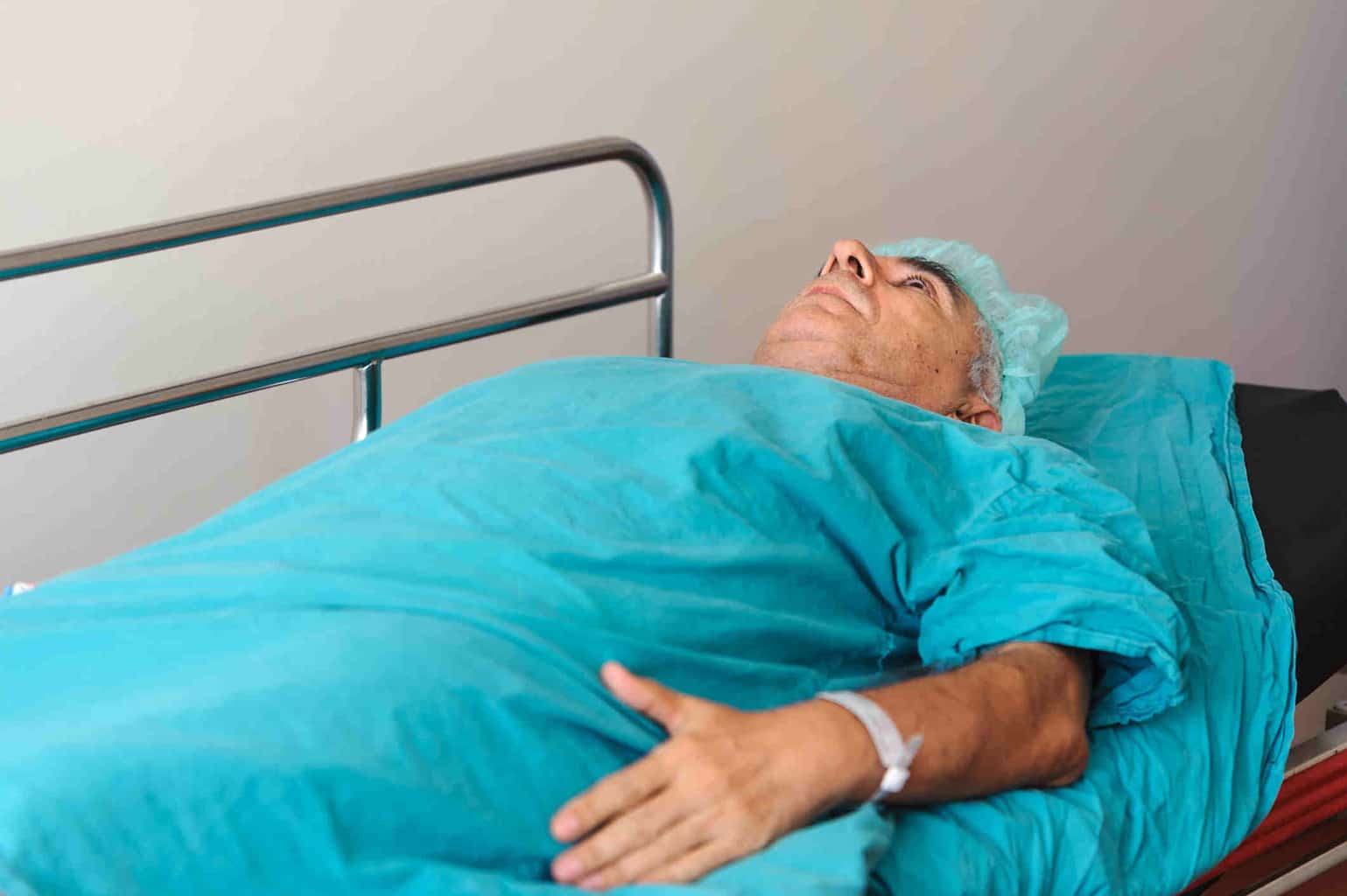
[cmamad id=”11236″ align=”center” tabid=”display-desktop” mobid=”display-desktop” stg=””]
I’ve been saying in this newsletter for a while that our entire approach to prostate cancer in this Western world is so terribly horribly wrong.
For example, one of the most common therapies for prostate cancer turns a man into a chemical eunuch.
It’s a treatment called androgen deprivation therapy.
And there is this idea that doctors have about keeping testosterone low.
They think that you should keep your testosterone low to prevent prostate cancer from spreading.
But is testosterone bad? No, that’s completely and totally crazy.
Today’s study will show how crazy it is.
And it will give you a completely new view on what you need to do to improve your health — especially to prevent prostate cancer.
Prostate cancer is the most common cancer in men besides skin cancer.
There are at least 15% of men who die and have prostate cancer but didn’t realize it when they were alive.
They didn’t die of the prostate cancer.
In 96% of cases, prostate cancer is pretty benign.
It grows very slowly and when a man eventually dies, it isn’t from prostate cancer.
However, and this is a key point — the things that cause prostate cancer in your body also cause other health issues.
These problems include erectile dysfunction, high blood pressure, heart problems, even diabetes and Alzheimer’s.
[cmamad id=”11237″ align=”center” tabid=”display-desktop” mobid=”display-desktop” stg=””]
There is a cause of prostate cancer that involves inflammation in the body.
It involves low cellular metabolism.
The cells are operating at a very low energy level in a state of low oxygen and high distress.
This causes a lot of health problems besides prostate cancer.
One of the characteristics of this poor metabolism is low testosterone.

This is a very important study.
It shows that men with high-grade prostate cancer have very low testosterone.
Men with moderate prostate cancer have low testosterone also, but not as low as men with very severe high-grade cancer.
In men with very moderate or low-grade prostate cancer have the highest testosterone.
But, all men with prostate cancer have low testosterone, to begin with.
And in that process, the body lowers testosterone because it is not focusing on what it regards as the “reproductive” system.
It can’t afford to put resources toward procreations when it’s fighting for its life.
And when you have a low metabolism and low cell energy, this is the reason it shows up as low testosterone — among other things.
It is one of the body’s survival mechanisms.
Now, here’s another interesting thing that happened after these men had their prostates removed.
Their testosterone rose.
Testosterone after prostate removal increases — a lot!
Why would testosterone levels rise after removing a cancerous prostate?
The most probable explanation is that the prostate puts out many different hormones.
These hormones signal the pituitary gland in the brain to produce luteinizing hormone (LH).
The body has a dampening mechanism so that if there is too much LH, the prostate responds.
It kind of answers back and says “that’s enough, testosterone levels are high enough now.”
Now however without that prostate giving the signal to the pituitary, the pituitary puts out a lot of LH and testosterone levels rise without being dampened.
Are higher testosterone levels a good thing after prostatectomy?
Probably not.
The body still has the same problems with low cellular energy and inflammation that led to the prostate cancer.
But now, without a prostate in place, there are no dampening mechanisms to lower testosterone levels in the body’s fight for survival.
I think this is probably why men who have prostatectomies also suffer from other problems such as persistent erectile dysfunction.
Many men that contact me have not been able to have an erection since they had their prostate removed.
And they have the problem even if that was some years ago.
I think the reason is that the prostate is no longer there and is no longer providing the hormonal benefits that an intact prostate provides.
One solution might be to take supplements that lower estrogen.
The body turns testosterone to estrogen in a sick man’s body.
It also happens in an obese man’s body, or any man who has high testosterone but no prostate.
The key point is to lower estrogen levels.
Lowering estrogen also lowers inflammation in the body and can potentially reverse long-standing erectile dysfunction.

http://onlinelibrary.wiley.com/doi/10.1002/pros.10140/full

Hi Matt, I am a 71 year old “prostate cancer” survivor. I know, all to well about “Androgen deprivation” therapy.my “radiation therapy/androgen deprivation” finished on April 15th 2017, at that time my Testosterone level was UNDER 10 ! My muscle tone was gone (including Heart function, grip strength), I was having “night sweats, hot flashes, anxiety attacks, growing man boobs” I refused any further “Lupron” shots and told my urologist and oncologist that “I didn’t sign up for a sex change” , but the damage was done. Since then, I have been using your protocols to help normalize my Hormone Balance. I’m improving but still have a way to go. My last test, July of 20, I had showed my T level @ 275 ng/dl, while still low, a vast improvement from “less than 10”, my “Estradiol” level 39 pg/ml. I just ordered another set of blood tests and will share the results when I get them. I have been reading my “courses” and was wondering if I should be asking for “different” blood tests, One problem I’m having is supplementing with “recommended doses” of all the suppliments. What I have been able to source locally (Longview WA.) are larger doses than you recomend. What can I do ? Thank You, Alan Munger, devoted follower since 2014